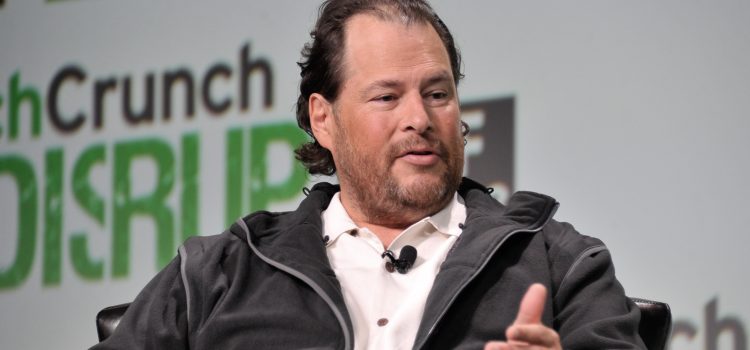

This article is an excerpt from the Shortform book guide to "Trailblazer" by Marc Benioff and Monica Langley. Shortform has the world's best summaries and analyses of books you should be reading.
Like this article? Sign up for a free trial here.
What are the best quotes from Trailblazer? Why does Marc Benioff encourage moral principles over profit?
The capitalism that powered the 20th century is under increasing scrutiny. In Trailblazer (2019), Marc Benioff argues that the time has come for a conscious revolution in business—and that his company, Salesforce, is leading the way forward.
Let’s look at Marc Benioff’s quotes from Trailblazer that summarize the book.
Quotes From Trailblazer
Traditional capitalism is facing increasing scrutiny because of its association with socioeconomic inequality, environmental degradation, and corporate greed. According to Marc Benioff, CEO of the Fortune 500 software company Salesforce and renowned philanthropist, it’s time for a conscious revolution in business. In Trailblazer (2019), Benioff says his company is leading the way forward by practicing a business model that foregrounds ideals over profits and represents the future of capitalism.
Below are four of Marc Benioff’s quotes from Trailblazer that best encapsulate his ideas.
“The great miscalculation of the age is the idea that businesses have to make a choice: to become profitable, or to become platforms for change. This is not the case.”
Benioff says that Salesforce became a Fortune 500 company by practicing principled business. According to Benioff, the best approach to business is to place moral principles at the forefront of organizational decision-making. We’ll call this model principled business. In this model, profit isn’t the sole driving force; instead, it’s balanced with a commitment to social responsibility, environmental sustainability, and internal fairness and equity.
Principled business is a form of stakeholder capitalism (an economic perspective that says your company has an ethical duty to uplift everyone it impacts, even if it only impacts them indirectly). According to Benioff, this flies in the face of the conventional wisdom popularized by economist Milton Friedman, who argued that businesses’ only duty is to make money for shareholders.
“It’s about how to create a culture where doing well is synonymous with doing good in order to thrive in a world where a company is only as strong as the principles it adopts.”
Benioff explains that Salesforce takes pains to foster employee well-being because vibrant employees are more engaged and productive, so they can better support the company’s principled business efforts. In his view, Salesforce employees comprise the company’s “ohana” (the Hawaiian word for family—Benioff says he feels connected to Hawaiian culture because he’s vacationed there his whole life, so he infuses Salesforce with aspects of it). Salesforce uses two measures to make employees feel like family: paid volunteerism and opportunities for mindfulness.
“Trust has to be your highest value in your company. And if it’s not, something bad is going to happen.”
According to Benioff, it’s vital that all stakeholders have confidence in Salesforce, its leaders and employees, and each other. He learned this primarily by witnessing other companies undergo public crises of confidence—for example, Salesforce helped Toyota recover from the controversy that ensued when it knowingly failed to address safety issues with vehicles it manufactured, and Google suffered from mass public disapproval due to executives’ inappropriate handling of sexual harassment issues. Benioff also reasons that this confidence gives Salesforce a competitive edge—the company is more likely to attract and retain customers and employees if it has their confidence.
The primary way that Salesforce inspires stakeholders’ confidence is via accountability supported by transparent communication. Benioff says this often happens in relatively small ways—for example, executives livestream some of their meetings so that all employees have access to important company information, and the company has a website customers can consult to find out about the current operational status of Salesforce products and services, including any incidents or maintenance activities that may affect their availability.
“Here’s the thing about values: You have to use words to identify them, but they won’t create true value for you unless they turn into consistent behaviors.”
Benioff credits Salesforce’s immense financial success to its practice of principled business. To support this belief, he cites a variety of statistical evidence: For example, one survey shows that customers are more likely to approve of (and therefore buy from) companies that demonstrate social and environmental responsibility.
Additionally, Benioff says internal research shows that one reason employees are drawn to work at Salesforce is that they feel they can stand behind the company’s principles and feel good about their contributions to society. Attracting and retaining talented employees helps Salesforce accomplish its larger mission and make profits, contributing to the company’s overall health.

———End of Preview———
Like what you just read? Read the rest of the world's best book summary and analysis of Marc Benioff and Monica Langley's "Trailblazer" at Shortform.
Here's what you'll find in our full Trailblazer summary:
- What “principled business” means and why it matters to you
- The priority that Salesforce—a Fortune 500 company—puts before profit
- How capitalism can look different in the future






